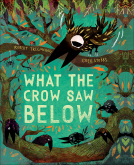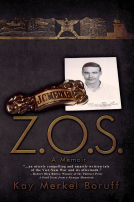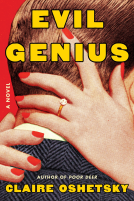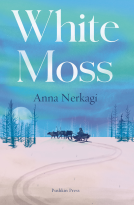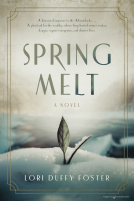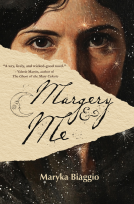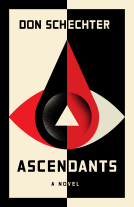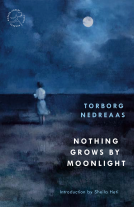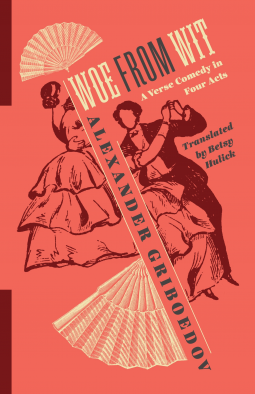
Woe from Wit
A Verse Comedy in Four Acts
by Alexander Griboedov
This title was previously available on NetGalley and is now archived.
Send NetGalley books directly to your Kindle or Kindle app
1
To read on a Kindle or Kindle app, please add kindle@netgalley.com as an approved email address to receive files in your Amazon account. Click here for step-by-step instructions.
2
Also find your Kindle email address within your Amazon account, and enter it here.
Pub Date Apr 14 2020 | Archive Date Jun 30 2020
Talking about this book? Use #WoefromWith #NetGalley. More hashtag tips!
Description
Woe from Wit was written in 1823 and was an immediate sensation, but under heavy-handed tsarist censorship, it was not published in full until forty years later. Its influence is felt not just in Russian literary language but in everyday speech. It is the source of a remarkable number of frequently quoted aphorisms and turns of phrase, comparable to Shakespeare’s influence on English. Yet owing to its complex rhyme scheme and verse structure, the play has frequently been considered almost untranslatable. Betsy Hulick’s translation brings Griboedov’s sparkling wit, spirited dialogue, and effortless crossing of registers from elevated to colloquial into a lively contemporary English.
A Note From the Publisher
Russian Library
Advance Praise
"Certain masterpieces seem to defy translation. Griboedov’s scintillating verse comedy of manners, Woe from Wit, is thought to be one of them. Betsy Hulick’s translation comes as close to nullifying that notion as any. It is accurate, sprightly, inventive and eminently playable. She has captured the sharp characterizations and aphoristic dialogue of the original. Her version deserves to be on the same shelf as Richard Wilbur’s Tartuffe and the Cyrano of Anthony Burgess.
-Laurence Senelick, Tufts University
Available Editions
| EDITION | Other Format |
| ISBN | 9780231189798 |
| PRICE | $16.95 (USD) |
Average rating from 15 members
Featured Reviews
 John L, Reviewer
John L, Reviewer
You probably don't always read translations of plays from Russia, and plays with rhyming dialogue at that. But this is certainly one instance where those with half an eye to that country should do so. A young man returns from abroad to the place where his childhood sweetheart lives, to find her more grown up and moved on. Also, the whole family seems to find everything he says quite strident – in being so utterly, utterly quick to criticise, and finding everything about society fuddy-duddy, nepotistic and old-fashioned. The comedy follows him as he tries to stick around with the family, and while she tries to avoid him, leaving him to work out who his rival might be en route to a great society ball the household is hosting. The good thing is this is a breeze to read, with snappy dialogue in short lines of verse, and it remains funny, even if we might not know all the ins and outs of what the author was saying. Never mind, the fantastic introduction is on hand to explain the full social context of the times the play was set in, and gives us both the author's life story and the history of the play since. It's kind of a loose approximation, but where Russians might just have to need such a similarly annotated edition of "The Importance of Being Earnest" to understand us current Brits, so we might need to read this to understand the Russian that constantly quotes this, or performs this in full, to this day. I've always respected this publisher, even if I've not always loved their work, but this volume really does prove to me the 'classic' status of, and the worth in reviving, this text. It's not for everyone, but it should well be for many.
It's been awhile since I sat down and read a play. I really enjoyed "Woe from Wit," but I would have been entirely lost had I not read the forward. The forward provided the political and cultural background necessary to really track what was happening within the 4 acts.
I was actually shocked by how many common phrases could be found within the play. I was happy to receive the early release of this addition because I don't know that I would have otherwise taken the time to give this a read. Overall, I really enjoyed it.
 Fran E, Reviewer
Fran E, Reviewer
Early 19th Century Russia. Estate life of Moscow's nobility was changing. Chatsky represented a new generation of nobles. His estate was run with the assistance of over three hundred serfs. He was "seized by wanderlust, and- off he goes...seeking greener pastures...And then...He deigns to reappear...". Three years have passed. He determined that "It's good to travel to a distant land...-or live on one's estate, with work its own reward, not kowtowing to the powers that be." Chatsky can't wait to see Sophie, the girl he loves. Growing up they were inseparable. He was in for a rude awakening.
Famusov, Sophie's father, was hosting a high society ball on the night of Chatsky's unannounced arrival. Chatsky observed the so-called moral and ethical behavior of Famusov's elite guests. Literary life replete with "delight, curiosity and enthusiasm" was painfully absent at this salon. "...anyone who has "five or six thoughts in his head" has no place in this society...People waltz, play cards...frivolity personified." Liza, (Sophie's maid) tells Sophie, "Like all gentlemen hereabouts, your father's set his sights on decorations and high rank...".
Chatsky noticed that "old prejudices linger". His outspokenness was misunderstood. He would not "practice civility...And join the civil service...". He said, "Service, not servility...Trample those beneath whom you despise, Flatter those above you adulate-an age of servile urges...". "But listen! in uniform, or a civilian who's a more delightful and amusing man than Alexander Chatsky?...He had a sharp, inventive wit...".
"Woe from Wit: A Verse Comedy in Four Acts" by Aleksandr Griboyedov and translated by Betsy Hulick, was written in the 1820's in the period between the War of 1812 against Napoleon and the Decembrist Revolt of 1825. The four act satirical play was heavily censored during the author's lifetime. This reader lacked familiarity with the Russian language and was unable to experience the colloquialisms and oft quoted Russian proverbs. The masterful introduction by Angela Brintlinger was thoroughly researched and most informative. I highly recommend this tome.
Thank you Columbia University Press and Net Galley for the opportunity to read and review "Woe from Wit".
 Reviewer 2883
Reviewer 2883
Thank you to Netgalley and Columbia University Press for access to this arc.
When I saw this arc offered, it sounded as if it would be fun and interesting to try reading a classic Russian play. I haven't read many plays and by the halfway point I remembered why - I find I don't care for them as much as prose. So this is definitely an "it's not the play, it's me" reason for stopping. It appears to be well translated but as plays are not my thing and I don't know the famous Russian aphorisms, it just wasn't working for me.
I appreciated the introduction and note from the translator in the beginning of Woe from Wit. As a lover of history, I enjoyed learning about Alexander Griboyedov. I don’t know much about Russian history, thus, it helped me understand this satire’s context.
The play was fast-paced and at times poetically fluid (which shows the artistic abilities of their translator too!). I particularly enjoyed the interchanges between Chatsky and Sophie. My romantic heart wanted to see them together. Afterall, they were young lovers.
Throughout the scenes, the reader will notice the hypocrisy within the Russian aristocratic society. They, the aristocratic characters, claimed that Chatsky had lost his mind, a rumor sparked by Sophie. When, in fact, Chatsky is the only one who appears sane and intelligent. All the other characters are too closed-minded and narcissistic. They only care about high-society, and keeping their traditions the same (not wanting others to read books and get an education...insane!).
This book has definitely incited a personal interest in Russian history for me. I hope it does for you too!
 Juli R, Reviewer
Juli R, Reviewer
It was The Master & Margarita that first, truly, brought Russian literature and its potential for irreverence, absurdity and (not so-) disguised social commentary to my attention. From there I expanded to the more classical texts such as Pushkin’s Onegin (love at first read) and Tolstoy’s War and Peace (merely whelmed). Thankfully there are publishers out there, such as Columbia University Press’ ‘Russian Library’ project and Pushkin Press, which continue to shine a spotlight onto great, newly translated literature. Woe from Wit is definitely an addition to this. Thanks to Columbia University Press and NetGalley for providing me with a copy of this book in exchange for a review.
Woe from Wit, according to this edition’s introduction, is still frequently quoted by Russians in their everyday life. When asked what the time is, those without watches will say that “no one happy minds the clocks” and Chatsky’s speech brings us the phrase “and who are the judges?”, letting us question who dictates what we should do and why. I’m always amazed by the influence of plays on out culture. You see it now with films and series which are quickly picked up by popular culture but also very quickly dropped again. Only a few end up giving voice to a sentiment that endures, but as long as the sentiment endures, so does the play that voiced it. Woe from Wit gives voice to many things, especially the frustration of a younger generation of men in 10th century Russia, who traveled abroad and adopted more progressive ideals than those at home. This clash, although with comedic timing, is present throughout Woe from Wit and it leaves our Romantic protagonist frustrated. These frustrations end up later leading Russia into the Decembrist Uprising of 1825 and, of course, the Russian Revolution.
In Woe from Wit, a young man, Chatsky, returns to Moscow from abroad, hoping to reconnect with his former love. Unfortunately, Chatsky finds a Moscow, and a beloved, that has changed and grown while he was away. She has moved on and will no longer greet him with the same enthusiasm and devotion, while Moscow itself is now full of quick judgements, nepotism, and a fear of radicalism. Of course, everything coming out of Chatsky’s mouth is seen as revolutionary and upsetting. Woe from Wit is a comedy, but one that has a keen eye and a sharp tongue. Much can be found to criticize, whether it is the job security of the maid depending on keeping her mistress’ secret, the father who grovels before all, the Princess whose own racism she only ever allows to be adorable, and the clerk who understands the safety of being meek and mild. Chatsky himself bursts onto this scene of carefully played personas and carefully established mores with a distaste for all, and although the consequences are comedic, they are also tragic. The title itself is also key to understanding this balance between comedy and tragedy within the play. 'Wit' is usually something we associate with fun and laughter, being adored by the crowd around you for your quick tongue. In Chatsky's case, his cleverness and way with words sees him scorned by those around him who are either not quick enough themselves or dislike being the object of mockery. It also allows the reader/observer of the play to question whether Chatsky's wit does him any good. Perhaps he is morally above the other characters, but perhaps he is also a little cruel in his mockery.
This is my first time reading anything by Griboedov, but I greatly warmed to the quick wit and sly judgment on display in Woe from Wit. The quick repartees between different characters, especially Chatsky and Sophie, are a joy to read and made me long to see the play performed. The array of characters and their idiosyncrasies they all display are a joy to read, even as Chatsky remains a solid protagonist. It is important to read the Introduction, however, since it provides a good context for the play and its twists and turns. It is absolutely possible to read and enjoy the play without, but the added depth of the context really brings some of the play’s elements to life. Betsy Hulick, who is a part of Columbia University Press’ ‘Russian Library’ project, produces a great translation that allows for easy reading, while maintaining a rhythm and a rhyme that makes this Russian play feel familiar to an Anglophone audience used to Shakespeare.
Before I end this review, I do want to heap a little bit of praise onto the ‘Russian Library’ project itself. I’ve read a few of their translations so far and many of them, such as A Double Life by Karolina Pavlova, trans. by Barbara Heldt, were immediate hits with me and introduced me to a whole new way of writing. It’s definitely a project I will be keeping an eye on in the future.
Although reading plays may not be for everyone, I would recommend that those with an inteest in Russian literature and history give Woe from Wit a chance. Not only was the play in and of itself crucial to the development of Russian drama, it also provides a fascinating insight into the frustrations of Russian youths that influenced and caused major historical and societal changes.
Review will remain up indefinitely.
 Sarah W, Reviewer
Sarah W, Reviewer
"The Woes of Wit" was an easy read and it was interesting to see how the matter of madness was dealt with, but it's not one of my favorite classics. I really liked reading the preface though were they explained how many Russian sayings derived from this play.
Readers who liked this book also liked:
Carine Laforest;
Children's Fiction
